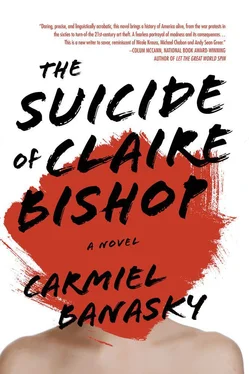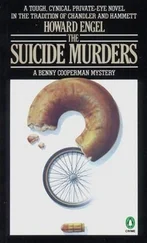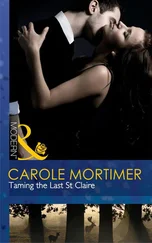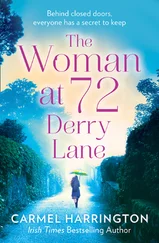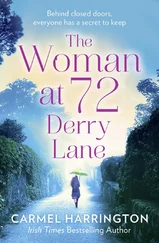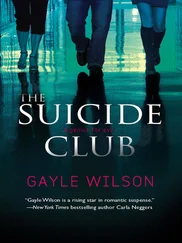“Here you are,” Mary said, kissing her on each cheek. She closed the door behind Claire. “You must be freezing.” It was chilly, but it seemed like the last cold night.
Claire dropped her small suitcase by the entrance, not knowing where she was expected to sleep. On the couch in the main room? On the floor in Mary’s? In the nursery? After months of grappling across long tables with Freddie and his lawyer, Claire had finally lost the apartment. Mary had decided then, no arguments, that Claire would stay with her in her East Village apartment, insisting she needed help with the baby, nearly a year old now, in order to meet her next deadline. Claire had agreed, but only as a temporary situation until the manuscript was complete and she wasn’t needed anymore.
Mary took Claire’s arm and led her into the living room. “I built us a fire, see?”
A candle was lit and sitting on a dish by a stack of books in the center of the floor, a few feet from the real fireplace that had been bricked over. The living room bled into the kitchen; the furniture was sparse, only one couch against the wall, and a small table in the corner that served as dining table and desk. But Mary made the room feel bigger than it was.
“Research,” Mary said, gesturing to the pile of books on the floor. “I’ll clean it up.” Instead, she went to the record player and put on Simon and Garfunkel. “It won’t wake Leo. Nothing wakes him, except his own crying.”
“You should work if you need to,” Claire said. “I can entertain myself.”
“No, I want to talk. I need a break. I haven’t seen you in years.”
“It’s only been a few weeks. You must miss me.”
“It’s the only emotion I’m capable of anymore. I’ve been trapped in here for centuries. I feel like a cavewoman. I thought it would get easier after ten months. But look at me.”
Claire did. Mary looked far from a cavewoman. “How’s Leo?”
“I feel like half the time I don’t know where I am. Eating, sleeping. Those words don’t have the same meaning anymore. I mark time by Leo’s bowel movements. I’m already scaring you away, aren’t I?” Mary sat on the floor by the candle. “I’m glad you’re here. And not just because you’re saving my life with this deadline. I can’t believe it’s next month!” She cupped her hands over her eyes and groaned, then smiled at Claire. “I’m glad you’re here.”
“You said that already,” Claire said.
“Oh, shush. I don’t smell that bad, do I? Come sit with me.”
But Claire’s muscles were wound so tight. She walked around the perimeter of the room, looking at Mary’s photographs instead of Mary. The prints were mostly from antique stores and flea markets, old passport photos and yellowed family portraits from nameless people who probably died in the Great War. Had they made it to America? Or were these photographs sent by ship to those who’d gone ahead of them? What would it mean to be an old photo found by Mary picked from among hundreds?
One photograph stood out to Claire from the rest, large and crisp. The man’s bald skull shone out almost three-dimensionally. His nose was owl-like and handsome and his ears were too big, which made his scowl charming in a way. This was a member of Mary’s genuine family, not her anonymous vintage one, though they were all mixed together on her wall, no pattern to discern who was who.
“My father,” Mary said, watching her.
“He looks like you. Or you look like him. Has he met Leo yet?”
“I should hope not. I’d have to reevaluate my atheism. It would be too embarrassing to start believing in ghosts now.”
Claire closed her eyes. “How could I have forgotten? I didn’t forget. I just wasn’t thinking. Why did I say that?”
How many of Mary’s stories had slipped her mind? There should be a word for the fear of forgetting a story.
“It’s fine,” Mary said. “I rarely talk about him. It was so long ago, before I met you. I probably only mentioned him to you once in all these years.”
“And your mother passed just a year after him.”
Mary nodded.
“And why did I say that? I’m sorry to bring it up. I should have asked about them more. What a terrible friend I am.”
“Claire! What’s the matter with you? Come sit down. And bring the picture.”
Claire sat and they leaned over the frame together in the candlelight.
Mary laughed softly. “Look at those ears. That’s what Leo inherited. And that big bald head. But my dad never liked having his picture taken. He used to say you should be able to rewrite memories, that’s the fun of them. Photographs ruined his fun.”
“Where did they emigrate from? Poland?”
“I don’t care.” Mary rested a hand on Claire’s knee. “I’m sorry, dear. I want to talk, but I must change.”
“What?”
“I can’t be in these real clothes anymore. Ever since Leo was born. I only put this on so you wouldn’t think I’d become a hobo.” Mary laughed briefly with her whole body — Claire had never noticed that about her laugh before. “I’d spend my life in pajamas if I could. Do you mind? You can use the bedroom to change, too.”
Claire followed her to the bedroom, where Mary grabbed her clothes from a pile on the floor and disappeared into the adjacent bathroom.
Claire went back to the front door and brought her bag into the bedroom and dug through it, hoping she’d packed something that wasn’t completely unflattering. But why would she care what Mary thought of her nightclothes? It was just Mary. Mary, whom Claire had known since she first moved to the city. Mary, who’d taught Claire to dance and dress and talk without ever letting on she was teaching. Mary, who had taken her out those nights Freddie didn’t come home, pretending to match his recklessness.
But the fish in her stomach were on a feeding frenzy, and some had minnowed their way to her throat. Claire undressed slowly at first, then hurriedly, afraid Mary would come out of the bathroom before she’d finished. But then this thought caused her to slow again — as if she wanted Mary to walk in on her. She checked herself once in the mirror and shook her head: her cap-sleeved gown had a hole by the armpit.
In the living room, Mary opened a bottle of wine. “Tomorrow I can start living like a normal person again, using dishes and glasses and wearing clothes. Since you’re here to remind me what the outside world is like. People drink wine from wineglasses! What a thing! But, for tonight—” Mary lifted the bottle toward her lips.
Claire bounced slightly on her toes. This small idea excited her. Indeed, she felt excitable watching Mary drink. “I don’t even own glasses anymore, so what do I know?”
Mary passed her the bottle. “I feel young when you’re around.”
“I haven’t a clue why!” Claire laughed and drank. “I feel the same with you.”
They drank Pinot Noir, the bottle a gift from the subject of one of Mary’s ghostwriting projects. Claire couldn’t help but wonder if it was from Leo’s father, the congressman, if they were drinking that man’s wine. Mary had barely told her a thing about him. Claire would have to read the damn book if she wanted to know more.
They lay on the carpet in thin nightgowns, candlelight; the room seemed to mold around them. When Mary lifted an arm, the light lifted with her. Mary had always been pretty, but she had grown so much into her own beauty. At forty-three she was shocking to look at, with her long, black hair that seemed wet in the low light. Her hand, as if of its own accord, lifted towards Mary. But Claire stopped it, and took off her own earrings instead.
They were near enough now that their knuckles touched. Claire felt grateful she had gotten to see Mary change, that there was beauty and life in her that she could still discover. She almost said this out loud.
Читать дальше
